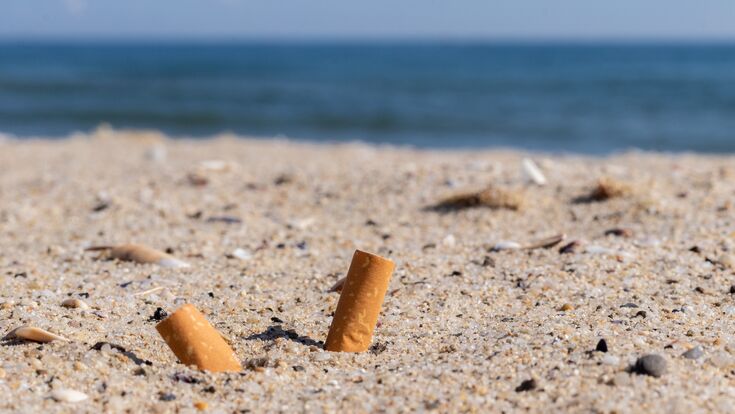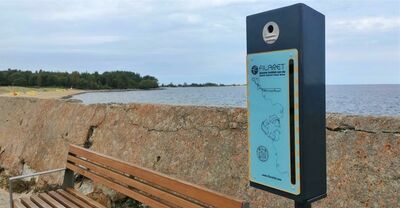Pollution : Special cigarette bins help fight pollution on Tallinn beaches

Discarded cigarette butts are a source of pollution on many beaches. "Every year, almost 80 tonnes of cigarette filters end up in the environment, which do not decompose and cause the toxic substances to reach the human diet through marine animals," said Tallinn Deputy Mayor Joosep Vimm. To address this problem, the authorities now have installed special litter bins to collect this waste material: "I hope that these special cigarette bins will help to reduce this widespread marine litter," Vimm added. "What makes the project particularly interesting is that, in addition to just collecting the cigarette butts from the beach, they will be upcycled into compostable 3D printing material, thus reducing the problem of plastic waste."

Cigarette butts are one of the most common types of marine litter in the Baltic Sea. In addition to plastic, most of the waste found in the Baltic Sea and in coastal areas is cigarette butts and cigarette filters, which are toxic and non-biodegradable. A single cigarette butt can pollute up to 1,000 litres of water, and toxins released from the filter into the water can persist for up to 10 years, becoming lethal to aquatic life.
Two month pilot project
In total, 20 cigarette bins will be placed in the urban space. The project is being carried out by the Circular Economy Department of the Tallinn Strategic Management Office in cooperation with Filaret OÜ. Filaret OÜ is a circular economy company with a unique collection service for cigarette butts. The company helps to remove cigarette litter from streets and natural areas, which is then recycled into environmentally friendly compostable 3D printing filament.
The cigarette bins were put up as part of Baltic Sea Day on 25 August and will be taken down at the end of October. If the project proves to be successful, the city will purchase the cigarette bins in the future and install them in a wider area along the sea and river in Tallinn.
